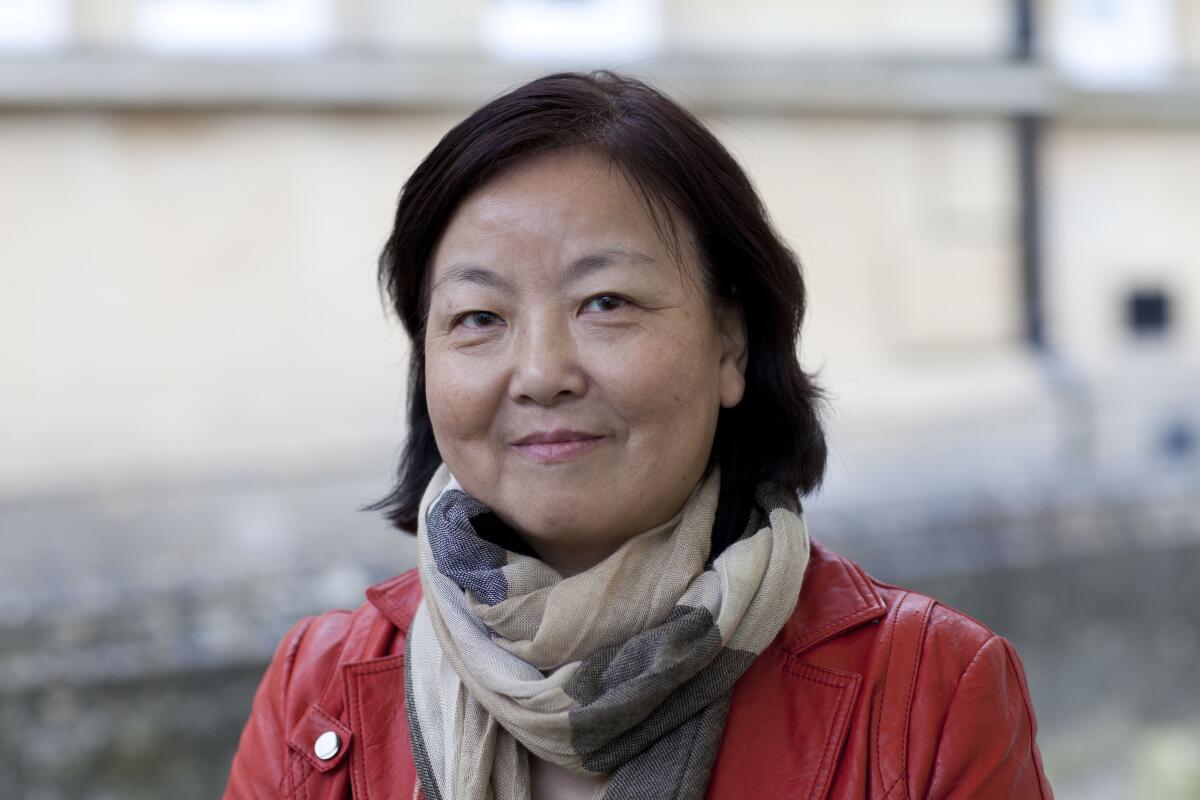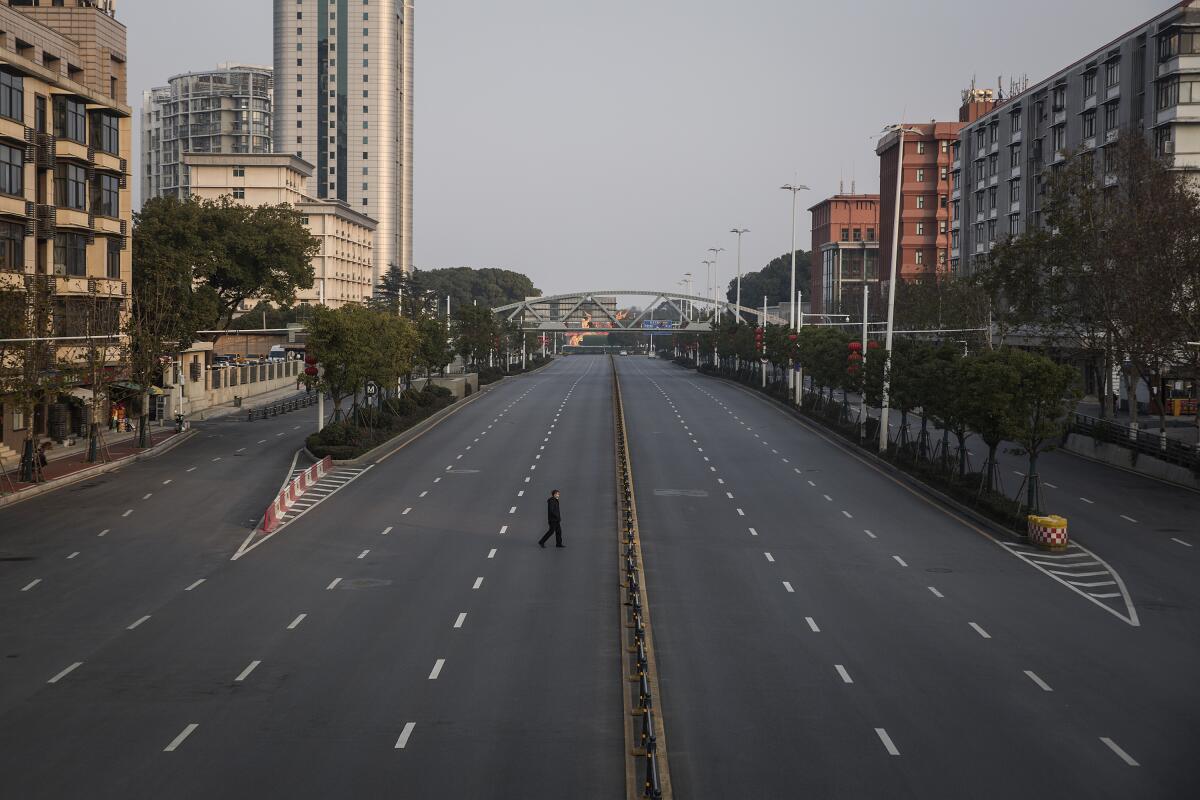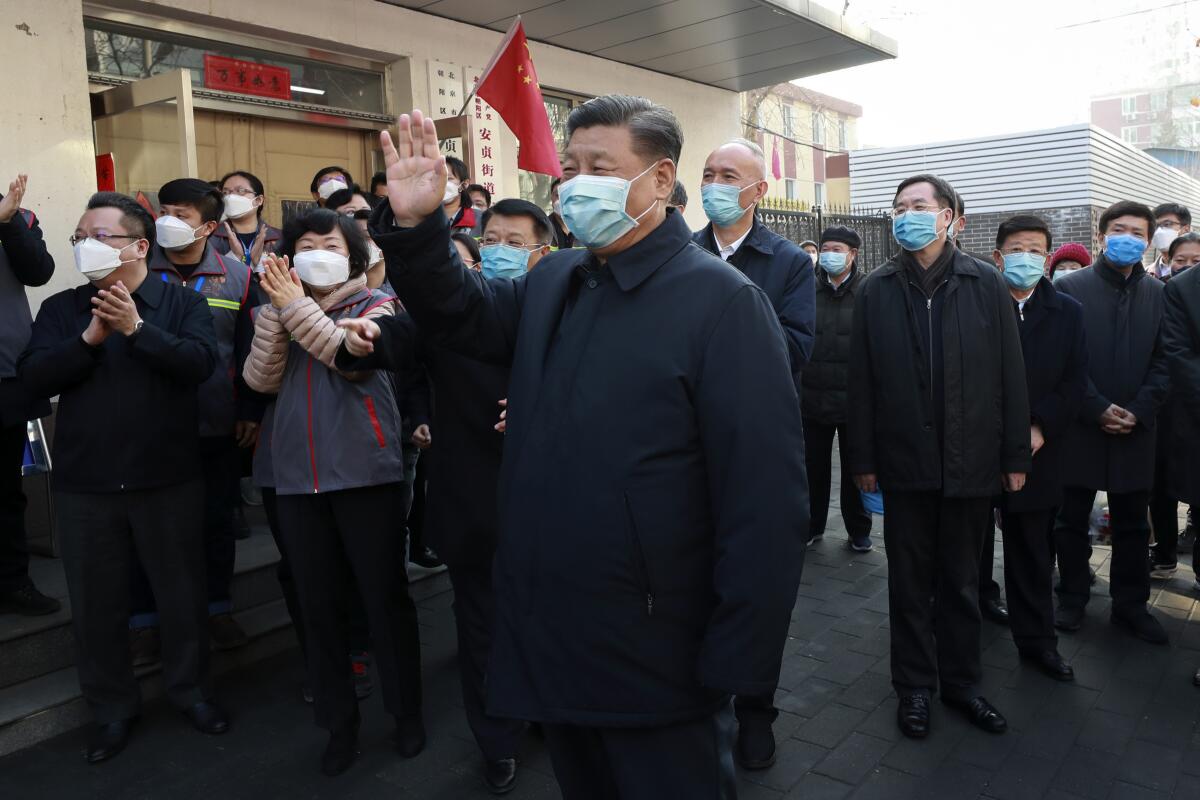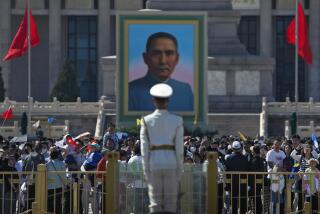Two months into coronavirus lockdown, her online diary is a window into life and death in Wuhan

SHANGHAI â Locked down in Wuhan for a week, then a month, then two, Fang Fang sought solace in words.
The novelist has called Wuhan home for more than 60 years. On Jan. 23, when the coronavirus outbreak that would soon become a pandemic was spinning out of control, China quarantined her city of 11 million. Many residents panicked, flocking to supermarkets or fleeing to other towns before the lockdown began.
Hospitals were already under strain. Coughing, feverish patients crowded hallways as doctors struggled with insufficient protective gear and testing equipment. They were running out of beds too. All eyes in China turned to Wuhanâs unfolding disaster. What erupted there would spread as the rest of the country began sequestering as well.
On Jan. 25, Fang Fang started her diary.
What began as a reflection on her own sorrow, anger and anxiety has become a window into life and death in Wuhan. Her musings have more than 4 million followers on Weibo, the Chinese blogging platform, and many more on WeChat, the social media app where thousands of comments flood each of her entries the moment they are posted.
Hers is a voice of rare authenticity, an antidote to the flood of Chinese propaganda celebrating the countryâs victory over the coronavirus. She weeps, she shouts, she describes corpses in bags, dragged away and burnt while their loved ones mourn alone. She curses those who concealed the truth and wonât apologize even as thousands die. While state media trumpets hero stories and upbeat slogans, Fang Fang speaks plainly of her peopleâs suffering.

Readers from across China say they wait past midnight every day, refusing to go to bed before they read Fang Fangâs posts. Some of them are censored by the morning.
Fang Fang begins almost every entry the same way.
Today is the third, the twenty-second, the fifty-sixth day of lockdown, she notes. (Sometimes she adds: âHeavens, has it been that long?â) Then she talks about the weather: snow, or wind, or gentle sun, the kind that makes Wuhan so lovely in the spring.
One day, itâs cloudy and sunny back and forth, âjust like my diary,â she quips. âOpen one moment, blocked the next.â
She describes what sheâs seen and heard that day, often referencing conversations with doctor friends who remain unnamed for their protection. One morning, she wakes up to a dramatic drop in Wuhanâs official infection numbers and gets three texts from a doctor. âItâs already under control, incredible!â he says.
But a short while later, he writes: âItâs too fast, right? Too incredible! Iâm scared to believe it.â
And an hour or so later, he tells her: âI looked more closely, the Wuhan numbers dropped because they changed the diagnosis standards⌠Pay attention to tomorrowâs numbers.â
This is how revelations come, a few lines at a time.
Fang Fang is a pen name for Wang Fang, originally from Nanjing but raised in Wuhan from age 2. She lived 30 years south of the Yangtze River and 30 years north of it, she says in one entry, surviving the Cultural Revolution, doing hard labor as a porter, then attending university and working as a reporter, an editor and an author. She won the Lu Xun Literary Prize in 2010, and was chair of the Hubei Writersâ Assn. for a time.
She loves Wuhan.
âYou could place all the worldâs cities before me and I would only know this one,â she once said in a documentary. âItâs as if, in a crowd of people walking towards you, among countless strangersâ faces, only one face smiles, letting out a laugh that you recognize. That face is Wuhan.â

She feels deeply for its people. In an entry on Feb. 11, she wrote: âThose carefree, straightforward Wuhan people who love to laugh without any reason; those Wuhan people who talk so fast and loud others think they are fighting.â
âBut today, many of them are suffering,â she continued. âThey are wrestling with the god of death. And I, or we, have no power to help at all. At most, I can only carefully ask on the internet, is everyone OK? And sometimes I donât dare to ask, for fear there will be no answer.â
Even before the outbreak, Fang Fang had drawn criticism from radical leftists in China, who tend to be ideological hardliners when it comes to nostalgia for the days of Mao Tse-tung.
She has been scorned for her realist portrayals of China: accepting neither the utopia of Communist Party textbooksâ version nor the land of brainwashed masses that critics abroad sometimes describe. She instead explores a complex country filled with flawed individuals struggling to survive under immense political, social and economic pressure.
In 2016, Fang Fang won a literary award for her novel âSoft Burial,â featuring a family of landowners who commit suicide amid Maoâs 1950s land reform campaign, when hundreds of thousands, possibly millions, of landlords were killed by peasants under the leaderâs exhortation.
In 2017, after criticism from party hardliners, the novel was banned.
For readers in quarantine, Fang Fangâs diary traverses the familiar and the unbearable: in one paragraph, she lies in bed scrolling through her phone. She notes rising vegetable prices. She wonders if anyone is at the park. She runs out of food for her dog.
In another paragraph, her high school classmate â the only other girl in the school band, who once shared a desk with Fang Fang â dies. Her neighborâs cousin dies. Her acquaintanceâs brother dies. Her friendâs parents and wife die, and then her friend also dies.
She writes of doctors dying on the front lines, of elderly living alone struggling to survive without caretakers, of the 6-year-old child found one day locked at home with his dead grandfather, too afraid to go outside because of the virus.
The measure of a nationâs civilization is not how high its buildings, how fast its cars, how strong its military, how advanced its technology, or how many tourists it can send out to consume the whole worldâs goods are, she posted on Feb. 25. âThere is only one test for you: how you treat the weak and vulnerable,â she wrote.
âIn Wuhan, virtually everyone is traumatized,â she wrote in another entry that was later censored. âThe people need to vent, to weep loudly, to speak of their sorrows and to be comforted. The pain of Wuhanâs people cannot be relieved by yelling a few slogans.â
In recent weeks, Chinaâs coronavirus outbreak has come under control, with less reported infections while cases skyrocket in the rest of the world. Chinese diplomats and propaganda have begun portraying China as a savior that can impart wisdom, test kits and protective gear to other countries.
Fang Fang has continued to seek accountability for those who rebuked Wuhanâs doctors, covered up the outbreak and prioritized face-saving politics over ânegative news.â
âAccountability is necessary. Or else how will you make it up to the thousands who have died, and more Wuhan people who have suffered?â she wrote this week.
The WeChat account that shares her entries has been censored repeatedly. Every few days, the account shares a post that asks readers to click and follow a new account as the current one is blocked from posting.

âThe diary is not smearing those who sacrifice and give of themselves, itâs just reminding those on top that weâre still far from the time to start singing praises. Why do you have to keep deleting over and over?â one commenter wrote on a censored entry. âIsnât this just an obvious lack of self-confidence? Are you feeling guilty?â
This week, an open letter to Fang Fang from an âanonymous high schoolerâ emerged on the internet. The writer claimed to be a 16-year-old completing a school assignment. Then he criticized Fang Fang for exposing the negative sides of the epidemic in Wuhan and failing to be grateful to her motherland.
âMy mom told me that I shouldnât air our familyâs dirty laundry outside. Auntie Fang Fang, did your mom ever teach you that?â he wrote. One could ignore Western countries when they wrote critically of China because âa human canât reason with an animal,â he said.
âBut you, Auntie Fang Fang ... you were born in the new China, raised under the red flag, you live on Wuhan grain and Yangtze water! Young people can be excused for saying strange things about their country because they are ignorant. You are 65, why are you different from others?â
Fang Fangâs response was a recollection of her teenage years during Chinaâs Cultural Revolution, a time when young Maoists criticized, tortured and killed their elders, teachers and intellectuals, tearing the country apart.
âChild, I must tell you: When I was 16, times were much worse than yours,â she wrote. âI had never even heard of the term âindependent thoughtâ ... Iâd never been an independent person, only a screw in the machine.â
She never expected that another Chinese generation would have to endure such things. But she wished an awakening for the âhigh schoolerâ and others like him: âYou will clean out the trash and poison that was poured into your brain in your youth ... Every round of cleaning is a round of liberation.â
Like many other of Fang Fangâs responses to critics, her reply sidestepped their arguments and insults, instead spotlighting systemic problems that have led to catastrophe for Chinese people â and suggesting the possibility of change.
âArrogant power always tries to cover things up, but Fang Fangâs diary removes those covers. Clear, simple, gentle speaking, yet it has the power to move oneâs heart and soul,â wrote one commenter.
Every night, with both grace and defiance, Fang Fang writes of Wuhan, her city of splendor, lies and sorrow. Her city of words.
More to Read
Sign up for Essential California
The most important California stories and recommendations in your inbox every morning.
You may occasionally receive promotional content from the Los Angeles Times.











